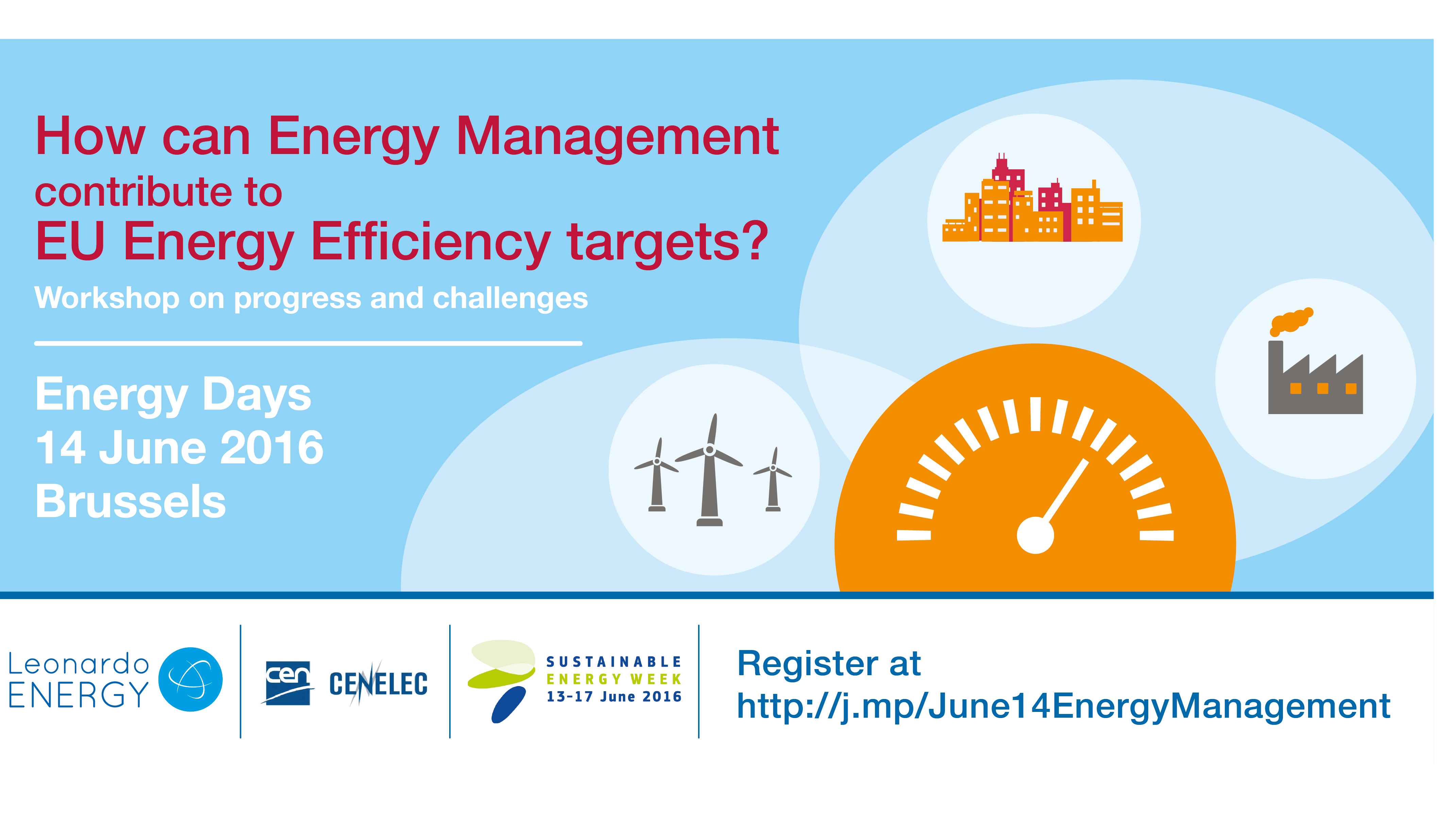 Policy & Regulation
Policy & RegulationHow much can energy management actually save?
Summary
Only 1.5% of medium to large companies in Europe have adopted EN ISO 50001. This figure is twelve times less than the value of the resulting savings in energy bills. adoption of energy management could lead to a reduction of European industrys energy consumption of 26% by 2035! This equates to 1728 Mtoe of cumulative energy savings from 2015 to 2035, and corresponding CO2 emission savings of 4.8 gigatonnes. The report will be launched on 14th June at a workshop during the E2 Energy Efficiency for Industry Conference in Brussels. Anyone seriously interested in any aspect of promoting
is invited to attend the workshop during this conference. Anyone seriously interested in any aspect of promoting energy management is invited to attended. The Report will be published on 14 June at the workshop at the European Copper Institute workshop. The E2 energy efficiency for Industry conference. The event will be held in Brussels, Belgium. The report will also be launched at the conference.
Open full article
How much can energy management actually save?
There’s no debate on the importance of the concept of energy management – a structured process through which organisations seek to optimise their energy use. Its definition and practice is codified through standards such as EN ISO 50001. Yet despite its overall acceptance as “the way to go”, it might come as a surprise to learn that only 1.5% of medium to large companies in Europe have adopted EN ISO 50001.
Why is this figure so low? One reason is that energy management has been given relatively modest attention within EU policy portfolios. Another reason is that organisations are simply unaware of the level of energy savings possible through energy management.
A report prepared for the European Copper Institute by Waide Strategic Efficiency Limited seeks to address both issues. It presents the results of a detailed quantified analysis of the savings potential from greater adoption of effective energy management in the EU’s industrial and service sectors.
The figure that Waide comes up with has to be taken extremely seriously. According to the report, adoption of energy management could lead to a reduction of European industry’s energy consumption of 26% by 2035! This equates to 1728 Mtoe of cumulative energy savings from 2015 to 2035, and corresponding CO2 emission savings of 4.8 gigatonnes. Obviously, investments are necessary to deliver these savings. These are estimated at some €91 billion of extra investments in equipment and related services between 2015 and 2035. Large as this investment is, it is over twelve times less than the value of the resulting savings in energy bills.
The report goes further by analysing policies that could help to increase energy management adoption rates across the EU and positions them within the context of the existing EU policy portfolio for energy efficiency. It considers where these measures fit within the broader portfolio of EU energy efficiency policy instruments and concludes with a set of policy recommendations pertinent to the ongoing reviews of the major EU Directives.
The report will be launched on 14th June at a workshop during the E2 Energy Efficiency for Industry Conference in Brussels. Anyone seriously interested in any aspect of promoting energy management is invited to attend.



